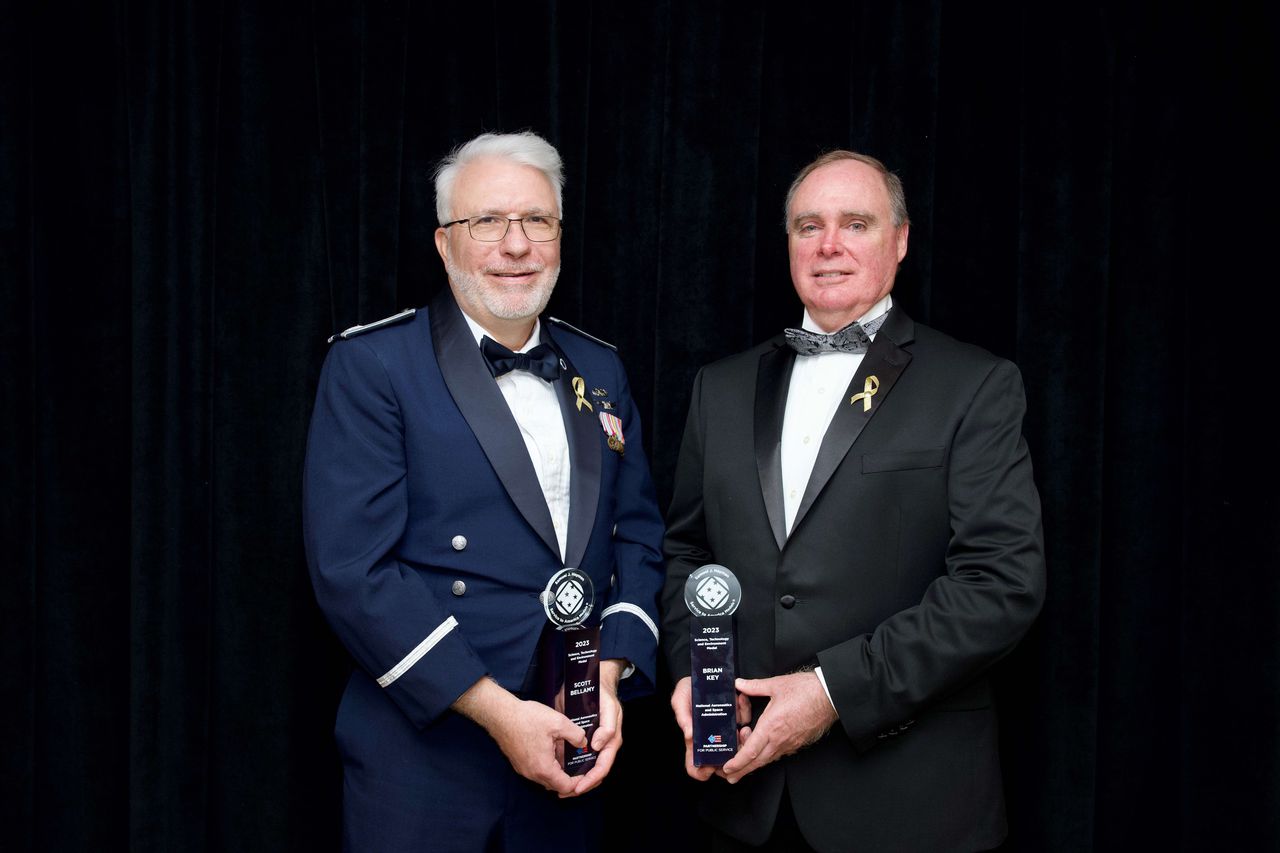NASA in Alabama honored for role deflecting an asteroid
Two NASA leaders in Huntsville accepted a top space agency award this week for leading a team that successfully deflected a moving asteroid in what could be a preview of a future Earth-saving maneuver.
Brian Key and Scott Bellamy of NASA’s Marshall Space Flight Center accepted the Samuel J. Heyman Service to America Medal this week in a ceremony at the John F. Kennedy Center for the Performing Arts in Washington.
In a mission called Double Asteroid Redirection Test – or DART – a NASA spacecraft hit an asteroid with a spacecraft in September 2022. That was after the spacecraft was launched in November 2021 and flew more than 6.8 million miles into space. It hit the 4921-foot-diamerter asteroid Dimorphos moving at roughly 14,000 miles per hour and changed its orbit.
Key maintained budget, staff, and scheduling for the mission and worked directly with DART spacecraft developers at Johns Hopkins Applied Physics Laboratory in Laurel, Maryland. Bellamy’s job was keeping the team on track to launch and operate the mission.
“I’m elated to see our team honored with this award and hope it will bring more attention to the valuable work NASA does to defend our home world,” Key said.
“We’re just the managers,” Bellamy said. “Our role has been to serve the team, keeping things moving forward as smoothly as possible to enable them to do the actual hands-on, pencilwork-to-hardware that brought this mission from concept to reality.”
NASA’s Brian Key, left, and Scott Bellamy accepted the Samuel J. Heyman Service to America Medal on behalf of a mission team for the first planetary defense test during a ceremony at the John F. Kennedy Center for Performing Arts in Washington on Oct. 17, 2023.
“I don’t even have the words to describe the release of emotion in the control room when we got confirmation that DART had impacted,” Bellamy said. “The whole team went from nail-biting suspense to unbelievable excitement in a matter of seconds.”
NASA and its partners in the European Space Agency are already planning a follow-up mission called Hera for launch in 2024. Its mission is further assess DART’s impact on Dimorphos.
NASA is also working on the front end of the challenge by developing the NEO Surveyor mission designed to speed up the space agency’s discovery of potential objects that could approach and possibly hit Earth.
Johns Hopkins Applied Physics Laboratory managed the DART mission for NASA’s Planetary Defense Coordination Office. Several NASA centers were also involved including the Jet Propulsion Laboratory in Southern California; Goddard Space Flight Center in Greenbelt, Maryland; NASA’s Johnson Space Center in Houston; Glenn Research Center in Cleveland; and Langley Research Center in Hampton, Virginia.
